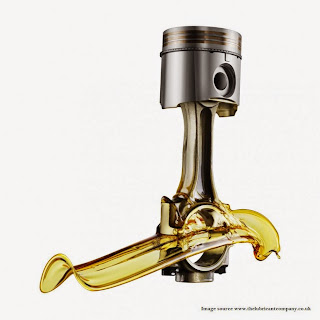Artificial Ligaments Market Overview - Business Intelligence
According to research report Artificial Ligaments Market is expected to reach USD 35.0 million by 2023 from USD 18.5 million in 2018, at a CAGR of 13.6%
The
growth of this market is primarily driven by factors such as the
increasing incidence of sports injuries, growing number of initiatives
to increase the awareness about artificial tendons and ligaments,
increasing research activities on artificial tendons and ligaments,
increasing preference for minimally invasive surgeries, benefits of
artificial tendons and ligaments, and the issues related to the use of
orthobiologics.
Download PDF Brochure: https://www.marketsandmarkets.com/pdfdownloadNew.asp?id=176955103
The
artificial ligaments market is segmented on the basis of application
and region. Based on application, the market is segmented into knee
injuries, shoulder injuries, foot and ankle injuries, and other injuries
(spine and hip injuries).
In 2018, the knee injuries segment is
expected to account for the largest share of the global artificial
ligaments market. This can be attributed to the increasing incidence of
knee injuries, discomfort at the harvest site due to conventional
surgical treatment methods that use autografts and allografts, rising
participation in sports, and advantages of artificial tendons and
ligaments as compared to autografts and allografts.
LARS held the
leading position of the global artificial ligaments market in 2017. The
company offers the Ligament Augmentation Reinforcement System (LARS)
for a wide range of applications, such as soft-tissue repair and
reconstruction for the treatment of knee, shoulder and arm, foot and
ankle, and hip injuries. Since 1992, more than 60,000 LARS ligaments
have been implanted by 400 surgeons worldwide, with more than 30,000
used for ACL alone. LARS ligaments have been successfully used for more
than 25 years in a wide variety of patients ranging from the general
public to elite athletes. LARS ligament procedures have led to high
patient satisfaction, shortened recovery time, early return to normal
activity (within 3–6 months), immediate restoration of stability and
function, and minimal complications.
Neoligaments was the
second-largest player in the artificial ligaments market in 2017.
Innovation is the major strength of the company, on the basis of which
it has been able to expand its product portfolio, enter new markets, and
build a better network for increasing its customer base. The company’s
innovative capabilities are evident from the products it has launched
over the last few years. For instance, in 2016, the company launched
Infinity-Lock, which is an implantable device used for the fixation of
acromioclavicular separations resulting from disruption to the
coracoclavicular ligaments. Moreover, Neoligaments, as a part of its
marketing and sales strategy, focuses on hosting and attending webinars,
workshops, exhibitions, trade shows, and conferences in order to
showcase its products and increase the awareness related to the
advantages offered by its products.
Get Report Sample: https://www.marketsandmarkets.com/requestsampleNew.asp?id=176955103
In
2018, Europe is projected to account for the largest share of the
artificial ligaments market, followed by Asia Pacific. The market for
artificial tendons and ligaments in this region is driven by the
increasing number of government initiatives to encourage sports;
increasing number conferences, meetings, symposia, and workshops to
showcase the latest sports technologies in the UK; increasing cases of
sports-related injuries; rising cases of knee replacements; minimal
out-of-pocket expenditure for medical devices; increasing number of
agreements between organizations, universities, and companies in
Germany; increasing aging population; and growing initiatives to
increase awareness about artificial tendons and ligaments in France.

Comments
Post a Comment